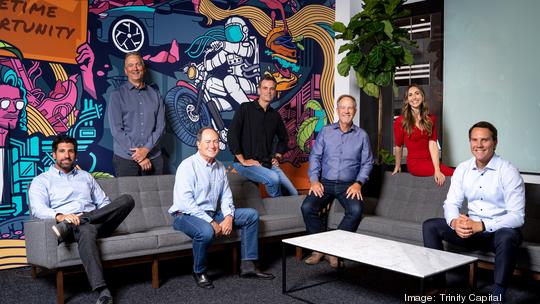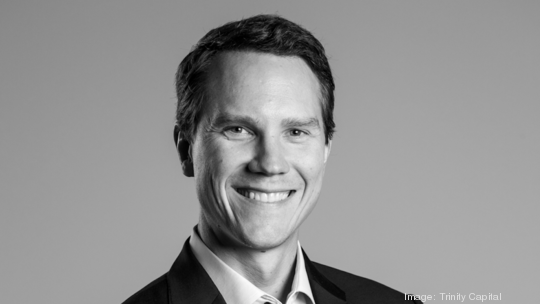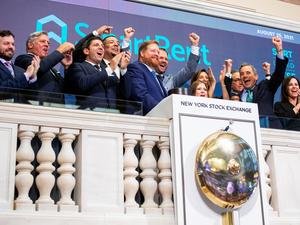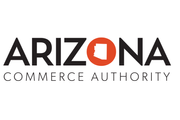
Trinity Capital Inc., an equipment finance and venture debt firm, had a banner year in 2021, but the firm is working to establish itself more in the minds of Arizona entrepreneurs.
Trinity Capital (Nasdaq: TRIN) provides loans and financing to high-growth technology startups, previously working with Lucid Motors, Impossible Foods, Galvanize, Gilbert-based Footprint and scores of other companies.
Kyle Brown, chief investment officer and president at Trinity, said 90% of Trinity’s deals happen around San Francisco, New York City and Boston, but the firm wants to do more to boost the local startup ecosystem.

“We planted our flag right in the heart of downtown Phoenix, we want to be the epicenter for venture capital activity investment in technology in the state of Arizona,” he said in an interview.
Aside from making more investments in the state, Brown said Trinity is also hoping to facilitate regular discussions to benefit the local startup community. Bringing other founders, investors and tech experts to Arizona, even for a brief visit, will help locals make connections that will ideally help their businesses grow.
While Arizona’s startup ecosystem has been on the rise in recent years, there are still just a handful of venture capital funds and angel investor groups in the state, so most startups have to seek financial backing from groups in other states.
Share price rises
Trinity reported last year, a record-setting $757 million in commitments, or signed deals the firm is working to close. The company went public in January 2021 and its share price has since risen about 25% in the months since. Click here to follow the stock.
Trinity typically writes checks worth between $5 million and $50 million and they generally work with startups raising series A to series C financing, with run-rates of at least $20 million. The firm generally avoids the more mature startups raising mega rounds.
Brown said that Trinity’s deals often include stock warrants, which give the firm the option to purchase equity shares at a predetermined price. Earlier this month the firm said it expected to receive $59.8 million after selling off its stakes in Lucid and Matterport.
These stock sales, or "equity pops" as Brown called them, are a positive outcome from investing in private companies, but it's not something the firm relies on. Brown also said these stock sales should not be read as a loss of confidence in these firms, but rather an internal decision.
“What we are not is a holder of public equities. And we have messaged to our shareholders that we are not that,” he said. “Regardless of what the price was at, really, we don't want to be in that game. That's not what we do.”
Brown said Trinity stands out from its competitors because of the makeup of its team, which now totals about 40 people. The company is staffed with entrepreneurs, technology experts and people that have raised venture capital themselves, which helps them understand their customers better.
“We're a bunch of operators and entrepreneurs who've gone to the dark side here to do finance and our customers appreciate that,” he said.
Trinity Capital is expected to release its 2021 fourth quarter and full-year earnings on March 3, after the market closes.










